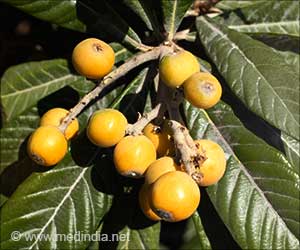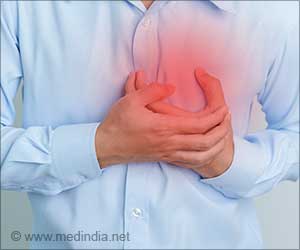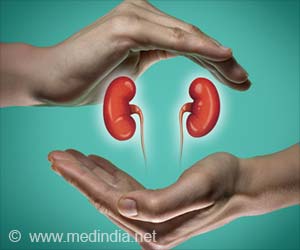Discover the potential of SIRT1 activation through resveratrol supplementation and caloric restriction on vascular reactivity.
- Activation of SIRT1, a key protein involved in regulating various biological activities, holds promise in improving vascular health and function
- Resveratrol, a compound found in certain foods, has shown positive effects on cardiometabolic parameters and has been linked to SIRT1 activation
- The study examines the impact of resveratrol supplementation and caloric restriction on vascular reactivity, SIRT1 levels, and related biomarkers, revealing potential benefits for cardiovascular health
Sirtuin 1 and Vascular Function in Healthy Women and Men: A Randomized Clinical Trial Comparing the Effects of Energy Restriction and Resveratrol
Go to source). Despite several research linking SIRT1 to protection against cardiometabolic diseases, there is a lack of knowledge addressing how this protein contributes to human vascular function. A recent Nutrients study looks into the effects of resveratrol-activated SIRT1 and energy restriction on vascular reactivity in adult men and women.
Role of Endothelial Dysfunction and Oxidative Stress in Vascular Health
By functioning as a barrier and an active regulator, the endothelium governs vascular homeostasis. Many studies have connected endothelial dysfunction to atherosclerosis risk factors.Endothelial function is evaluated using vascular reactivity measures. Non-invasive approaches based on vascular reactivity characteristics, such as nitroglycerin-mediated vasodilation (NMD) and flow-mediated dilation (FMD), are particularly beneficial for predicting cardiometabolic events in high-risk groups.
Oxidative stress has been established as a major contributor to endothelial dysfunction. Nitric oxide (NO) generation, activation, and bioavailability all decrease during oxidative stress.
Impaired Beta-Adrenergic Signaling and its Impact on Vascular Reactivity and Endothelial Function
FMD, an endothelium-dependent mechanism, denotes the relaxation of an artery during post-occlusive reactive hyperemia. FMD is inversely related to cardiovascular events and risk variables such as blood lipids, BMI, and smoking. Low FMD is also associated with decreased endothelium-dependent relaxation of coronary arteries in high-risk individuals.The stimulation of the sympathetic nervous system (SNS) through alpha1- and beta2-adrenoreceptor signaling modulates vascular reactivity by inducing vasoconstriction and vasodilation. Aging, hypertension, cardiac failure, obesity, metabolic syndrome, and diabetes are all linked to impaired beta-adrenergic signaling. This compromised condition results in elevated noradrenaline release and persistent vasoconstriction.
SIRT has been linked to increased longevity in animal studies. SIRT1 is an antioxidant and anti-inflammatory nicotinamide adenine dinucleotide NAD+-dependent protein deacetylase. SIRT1 has been shown to have sympatholytic effects in vitro, as well as enhanced cardiovascular function.
Activating SIRT1 through Dietary Approaches and Natural Compounds
Dietary energy restriction is a typical activator of SIRT1 in animals, facilitating longevity-increasing effects. However, long-term energy restriction conditions may be difficult to maintain.Notably, various foods and substances have been demonstrated to activate SIRT1. Resveratrol, for example, is a non-flavonoid polyphenolic chemical found in a variety of foods such as berries, grapes, and peanuts. Previous research has demonstrated that this chemical improves cardiometabolic parameters such as blood lipids, glucose balance, and blood pressure.
Effects of Resveratrol Supplementation and Caloric Restriction on Vascular Reactivity and SIRT1 Activation
A randomized experiment was carried out to investigate the effect of SIRT1 activation through resveratrol supplementation and caloric restriction on vascular reactivity in healthy male and female adults. In this study, 48 healthy people were selected to examine the effects of 500 mg/day resveratrol supplementation and 1,000 kcal/day caloric restriction on vascular reactivity measures and SIRT1.This group included 24 postmenopausal women and 24 men between the ages of 55 and 65. There was no history of cardiovascular disease or noncommunicable disorders among the subjects. Participants were given a 15-day washout period during which no drugs or supplements were given to them. Each participant was randomly assigned to one of two groups based on gender: calorie restriction or resveratrol.
Triglycerides, HDL-c, total cholesterol, apolipoprotein A-I (apoA-I), LDL-c, apolipoprotein B (apoB), non-esterified fatty acids (NEFA), lipoprotein (a) (Lp(a)), glucose, insulin, SIRT1 gene expression, high-sensitivity C-reactive protein (hs-CRP), noradrenaline (NA), and serum levels were all measured. Furthermore, vascular reactivity measures such as endothelium-independent and endothelium-dependent vasodilation were calculated.
The current study found that 30 days of calorie restriction and 500 mg/day of resveratrol administration enhanced circulating SIRT1 levels while decreasing plasma NA levels. Plasma NA decrease was strongly linked with increased circulating SIRT1 at baseline. After 30 days of treatments, circulating SIRT1 was found to be positively linked with NMD, regardless of gender or intervention.
In the calorie restriction group, circulating SIRT1 was likewise independently related to NMD. Although there was no statistically significant difference in SIRT1 gene expression, there was a statistically significant correlation with FMD in men. SIRT1 activation by calorie limitation occurs as a result of lowering glycolytic rates, which helps respiratory metabolism. SIRT1 is activated as a result of NAD+ replenishment and NADH decrease. Energy restriction increases the expression of pyrazine-amidase, nicotine-amidase 1 (PNC1), and nicotinamide phosphoribosyl-transferase (Nampt).
The current investigation found that 500 mg/day resveratrol supplementation boosted circulation SIRT1 in the same way that a severe caloric restriction diet did. Baseline SIRT1 gene expression was positively linked with changes in FMD, implying that people with higher SIRT1 gene expression have more FMD. SIRT1 expression has also been associated with FMD in men.
These data suggest that limiting calorie intake may ameliorate FMD in males by boosting circulating SIRT1 levels and lowering BMI. More biomarkers of SIRT1 biochemical pathways must be used in future studies to better understand its vascular and metabolism roles.
Reference:
- Sirtuin 1 and Vascular Function in Healthy Women and Men: A Randomized Clinical Trial Comparing the Effects of Energy Restriction and Resveratrol - (https://www.mdpi.com/2072-6643/15/13/2949)
















